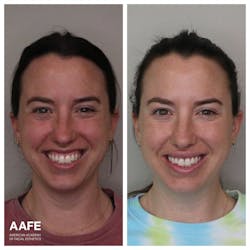Put your money where your practice is
Whenever dentist entrepreneurship is discussed, many dentists think about what other industries they can expand into, such as real estate, retail, or investment opportunities. Many successful dentists believe that because they have undergone many years of graduate training and built a successful dental practice, they must inherently be smart at business and entrepreneurship. They assume they can transfer their knowledge to another completely different industry.
Some dentists become very successful business owners outside of dentistry, and this gives them income in addition to that of their dental practices. Unfortunately, many more dentists fail at other business and investment opportunities for a variety of reasons, such as lacking business acumen for numbers or not having the necessary skills. Unless dentists have previous experience in business before they enter dentistry, most will squander their investment dollars or mortgage their dental practice on bad business decisions they’re not prepared to properly manage. Some transfer their stress to their team, which causes a downward spiral in morale. Does this sound familiar for you or any dentists you know?
More articles by Louis Malcmacher, DDS, MAGD:
Inject some life into your practice's bottom line with these high-ROI services
COVIDomics in dentistry
When it comes to dentist entrepreneurship, don’t look outside your practice to expand your business investments—look at your dental practice and your specific skill set. Most dentists view their practices as a complete practice no matter what combination of services they provide. Here is a new way to look at your dental business and expand it into multiple businesses—use the excellent and successful skills you already have to see the multiple businesses you can develop right now.
Many dentists have made smart investments in themselves by learning new skills so they can offer more specialty services. such as implant dentistry, orthodontics and/or clear aligner therapy, and Botox and dermal filler injectables. I’ve seen these new services add significant new production income to a general dental practice, anywhere from $10,000 to $50,000 a month.
There are challenges with this success. Let me share an example. Dr. Smith has an implant practice where full-mouth reconstructions are a regular part of the caseload. She took advanced training for a few years and has a booming general practice with production of $1 million with added implant production of $1.5 million. There are two major challenges with these types of practices. First is the added liability of the implant services to the rest of the practice. Implants have a high rate of lawsuits because of the invasiveness of the procedures, and this added liability puts the rest of the practice at risk. Dr. Smith will have a hard time selling the complete practice as there are few buyers for such a high-end practice. A buyer will either need the same skill set as the seller or be committed to learning implant dentistry. I’ve seen sellers not receive their return on investment, which basically turns into a loss.
New business practice model
I’ve advised many American Academy of Facial Esthetics (AAFE) members who are incorporating facial injectables. such as Botox and dermal filler, into their service mix about a new business model. This can be applied to any similar practice, including Dr. Smith’s.
An AAFE member (who I’ll call Dr. Smart) received foundational Level I Botox and dermal filler certification training in 2019. Within six months of his training, Dr. Smart had facial esthetics production of $20,000 a month in addition to his regular general dental production. He received advanced AAFE training and his facial esthetic production jumped to about $45,000 a month. With the advice of legal and accounting professionals, Dr. Smart created a new corporate entity as a separate dental practice exclusively for facial esthetic dentistry services.
This planning gives him some amazing opportunities. It creates a separate and independent practice from the original practice, which gives Dr. Smart a range of options in the future. He now has two different businesses that can be sold at any time. He can sell the general dental practice and keep the Botox and dermal fillers practice, which is fee-for-service and does not have to deal with dental insurance. The services are much easier to provide to patients, and they have a much higher ROI than the general practice.
Your best business
Dr. Smart has become a dental entrepreneur in the best way possible. He has used his skill set to expand his practice to create multiple businesses and opportunities for recurring revenue with Botox and fillers. Many AAFE members have expanded the elective esthetic injectable services by hiring a medical director and nurses to expand into a medical spa. So many of the skills and business principles that make a dental office successful are transferable to developing a successful medical spa.
Instead of looking outside of dentistry for entrepreneurship opportunities, it’s time to look at the amazing array of treatments you can provide patients. Services such as implants, orthodontics, Botox, dermal fillers, and PDO (polydioxanone) threads can create incredible opportunities for practice growth, a multiple practice model, and freedom for you and your family. Invest in yourself and become certification trained today!
Editor's note: This article appeared in the October 2021 print edition of Dental Economics.
Louis Malcmacher, DDS, MAGD, is a practicing general dentist, an internationally known lecturer and author, and president of the American Academy of Facial Esthetics (AAFE). Contact him at (800) 952-0521 or [email protected]. Visit aafetraining.com to find information about live patient Botox and dermal fillers training, solid filler PDO threadlifts, frontline TMJ/orofacial pain training, dental sleep medicine, bruxism therapy, and to sign up for a free monthly enewsletter.
About the Author

Louis Malcmacher, DDS, MAGD
Louis Malcmacher, DDS, MAGD, is a practicing general dentist and an internationally known lecturer and author. He is the president of the American Academy of Facial Esthetics (AAFE). You can contact him at (800) 952-0521 or [email protected]. Go to facialesthetics.org for information about live-patient Botox and dermal fillers training, solid-filler PDO thread lifts, frontline TMJ and orofacial pain training, dental sleep medicine, bruxism therapy and medical insurance, and to sign up for a free monthly e-newsletter.

